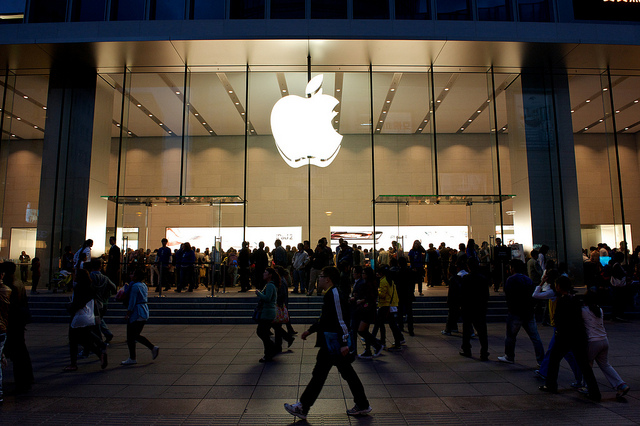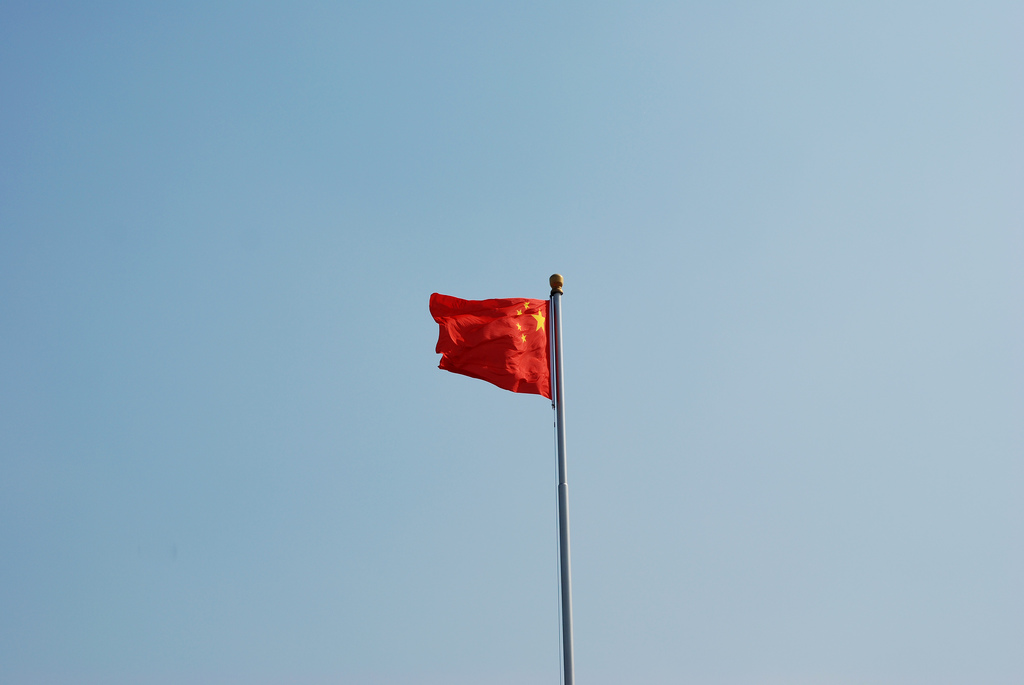Posted: January 2nd, 2015 | Tags: Al Jazeera, Apple, business in China, censorship, China, Google, Hong Kong | No Comments »

Business has turned ugly for multinationals and foreign businesses in general operating in China. After the financial crisis, many looked to China for salvation but the business climate for them has soured in the past couple of years. They have become an easy target for authorities looking to send a message to various industries, with a number of foreign firms such as GlaxoSmithKline and Danone swept up in a far-reaching anti-corruption campaign that is increasingly defining Xi Jinping’s presidency to date. Other firms to have received tough treatment include Apple, whose humiliating apology in 2013 for offering inadequate warranties I wrote about for Al Jazeera English. Read the rest of this entry »
Posted: December 19th, 2010 | Tags: censorship, China Times, CNN, Communist Party, cooking oil, NDRC, political reform, Wen Jiabao | No Comments »
A public spat in China this week between a top government body and an important industry has shed some light on the Communist Party’s inner workings. The reason? Cooking oil. Bear with me on this one.
In early December, the National Development and Reform Commission, China’s state economic planner, convened cooking oil producers in Beijing. The commission requested that producers increase cooking oil supplies in the run-up to next year’s Chinese New Year holiday – without lifting prices. Read the rest of this entry »
Posted: December 11th, 2010 | Tags: censorship, China, Government Leaks, Julian Assange, June 1, transparency, wikileaks | No Comments »

“WikiLeaks has had more scoops in three years than the Washington Post has had in 30,” tweeted media commentator Clay Shirky recently. The Afghan war logs, Iraq war logs and now #cablegate – WikiLeaks has enjoyed huge publicity this year for its muckraking leaks. Journalists like to quip that they’re not doing their job properly if somebody, somewhere isn’t angry. Judging by the U.S.’s reaction to #cablegate, WikiLeaks is doing plenty right then. Read the rest of this entry »
Posted: October 30th, 2010 | Tags: bloody map, censorship, China, citizen journalism, land dispute, press freedoms, protests, social media | 1 Comment »
In the absence of an independent media, citizen journalism and social media have thrived in China largely out of necessity. Chinese people have used the internet to report on civil and human rights abuses ignored by mainstream media. Now an anonymous Chinese blogger called Bloody Map has collated incidents of illegal land grabs and property demolitions and plotted them on Google Maps.
在较大的地图中查看血房地图公开版
The project, called 血房地图 (xuefang ditu or “Bloody Map”), charts often-violent evictions and demolitions throughout China. Read the rest of this entry »
Posted: March 26th, 2010 | Tags: Beijing, censorship, China, Google, Hong Kong, press freedoms, Shanghai | No Comments »
Google’s decision to back out of China and no longer kowtow to the government has been rightly applauded around the world. But the company’s actions have brought into sharp relief the political balancing act that Hong Kong now faces. Google’s move now threatens to marginalise Hong Kong and accelerate its assimilation into China.
Hong Kong is something of an enigma to China. Reunited after Beijing regained sovereignty in 1997, the two possess cultures that at times can be as disparate as those between the East and West. Besides the language difference, Hong Kong is unlike any of China’s other major economic centres in that it possesses rule of law, strong press freedoms and an uncensored internet. It is the only place where politicians and people can openly discuss the events of Tiananmen in 1989 and Falun Gong, the repressed spiritual movement whose practitioners frequently demonstrate in Hong Kong’s tourist spots.
Values that once helped draw Western praise and investment are the cause of much hand wringing in Hong Kong. It is the city state’s respect for freedom of information that represents a direct challenge to authorities in Beijing. Google’s retreat has highlighted Hong Kong as a paradox, a place within China’s domain that lies beyond the government’s reach and control. But increasingly reliant on favourable policies from Beijing, the Hong Kong government must now convince the Chinese leadership it will not become a hub for subversion. Simultaneously, it must not cede the autonomy accorded to it in the ‘one country, two systems’ approach.
The two have clashed in the past. In 2003 the Hong Kong government tried to pass anti-subversion legislation that critics feared would outlaw free speech and criticism of the mainland. The laws were widely viewed as an attempt to appease Beijing but withdrawn after 500,000 protestors marched on Hong Kong island. Since then, China has regarded Hong Kong warily and stymied efforts for further political reform. Pro-democracy campaigners are fighting to bring forward Beijing’s timetable for universal suffrage. At present, Hong Kong’s seven million people will be able to directly elect their chief executive in 2017 and their lawmakers in 2020. But campaigners want to see elections take place in 2012 which caused ire on the mainland.
Government officials now speak openly of establishing Shanghai as China’s financial capital and Hong Kongers fear this will extinguish their home’s unique role as gateway into the country. BusinessWeek reported that when Hong Kong’s chief executive Donald Tsang visited Beijing earlier this month, he was told Shanghai had surpassed Hong Kong’s economic output for the first time in almost 30 years.
Almost exactly a year ago, China’s Foreign Ministry spokesman made an ominous remark about his country’s attitude towards the internet. “Many people have a false impression that the Chinese government fears the internet,” Qin Gang said. “In fact it is just the opposite.” This ruthlessness could be wielded against Hong Kong if further insubordination is to come.

